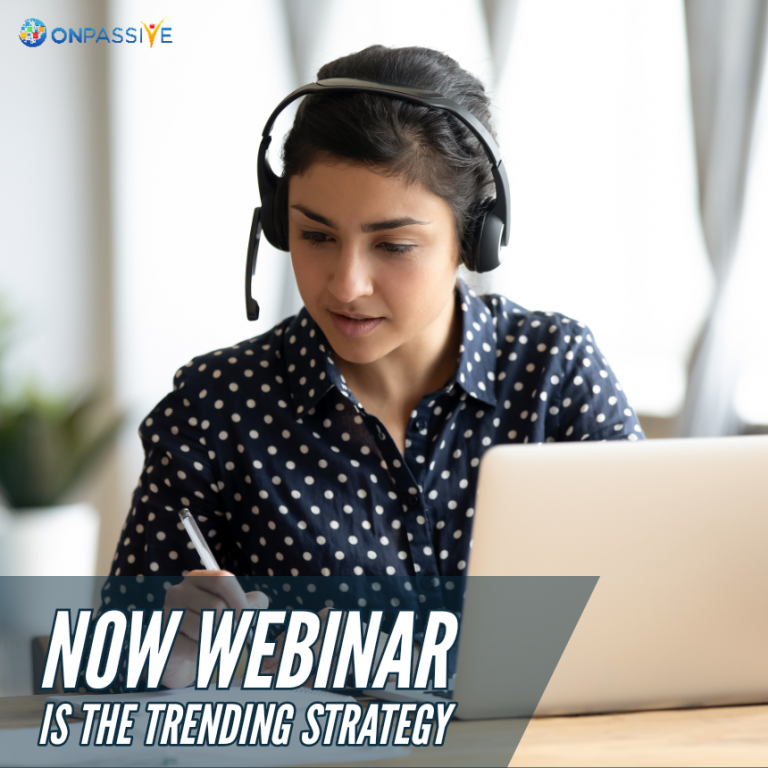
Webinars are one of the powerful ways to reach out to the target market and engage prospects. Two out of five B2B marketers say that webinars are one of the best performing digital strategies to convert prospects to valuable customers. As such, leading B2B marketers are already leveraging webinars as a part of their digital strategy to drive revenues. The rising webinar trends are expected to increase the demand for webinars among B2B marketers over the coming years.
Webinars help marketers to educate target customers on the advantages and benefits of their offerings. While webinars were leveraged to drive leads over the past few years, more B2B marketers are deploying webinars throughout the buying cycle. So, if you have not started using webinars yet, it’s high time for you to start. Using webinars in your digital strategy offers invaluable advantages. In this article, we have highlighted how webinars help B2B marketers throughout the buying cycle.
How Webinars Help B2B Marketers throughout the Buying Cycle
From thought leadership panels to live-demos, webinars effectively engage with target customers and drive conversion. Recent data regarding webinars show that:
- 77% of B2B marketers leverage webinars as a part of their marketing mix
- 75% of B2B buyers consumed webinar content to make business decisions in 2019
- 56% B2B buyers say webinars were one of the most valuable content they consumed in 2019
Awareness Stage
Webinars can be appealing to new prospects in their earlier stages of research as all buyers do thorough research before making strategic business decisions. Webinar formats such as how-to advice, industry research, and expert commentary are proven to drive better customer engagement in the awareness stage of the buying cycle.
For targeting prospects in the awareness stage, you must remain vendor-neutral, with an educational tone rather than a marketing tone. Also, don’t give a sales pitch, instead show you’re trustworthy. Also, use attendees’ queries and responses from Q&A and other sessions to gather more details about them and personalize marketing strategies for them.
Consideration Stage
Recent studies show that around 48% of B2B buyers consider webinars in the mid-stages of their buying journey. As such, B2B marketers may engage in webinars that focus on or include use cases, brand comparisons, and tutorials. With webinars, marketers can educate and inform clients interestingly and interactively. Also, webinars can be recorded and made available on demand. This helps buyers revisit presentations anytime, catch up on information missed during the live event, and complex or technical information can be digested in multiple settings. Webinars also enable marketers to introduce polls and gather information on prospective clients.
Decision Stage
Potential buyers at the bottom of the funnel want to learn specific information that helps them decide if they should invest in your products or services. In the decision stage, B2B buyers can focus on webinar types such as how to use your products or services, ways to optimize it, and the options you offer. At the decision stage, you can utilize different webinars trends to the full potential by:
- Answering questions from customers and addressing their queries
- Highlighting previous case studies and testimonials
- Inviting existing customers to discuss your products or services
Why B2B Businesses Need to Invest in Webinars
Lead Generation – Webinars are an excellent digital strategy to drive leads as they enable users to learn and engage with your subject matters virtually for free. Webinars on a specific topic or industry trend not only boost participation but offers a relatively effortless way to drive new leads and prospects.
Customer Engagement – Customer experience and satisfaction are the key objectives of B2B businesses to ensure business continuity and enhance profits. Webinars help in strengthening customer relationships and improving customer loyalty. Using webinars, B2B marketers can provide customers with additional value-added content. This eventually allows marketers to keep customers engaged and fosters referrals.
Direct Sales – This is a significant objective of hosting a webinar. By customizing the registration form of webinars, marketers can gather attendees’ contact information such as job title, email address, and more. These details can help marketers follow up at a later date. Also, by incorporating click-to-actions such as subscribe now, connect with us, pay now, and more, marketers can drive conversion.
Digital footprint – An engaging webinar cab be a continuous touchpoint for a businesses’ customer experience. Some marketers record webinars and use them as an on-demand webinar, which can be viewed or downloaded at any time. Others convert webinars into slideshows and share them with prospective customers.



Key Wendell
4 years ago
Robert Tantullo
4 years ago
Andrina
4 years ago